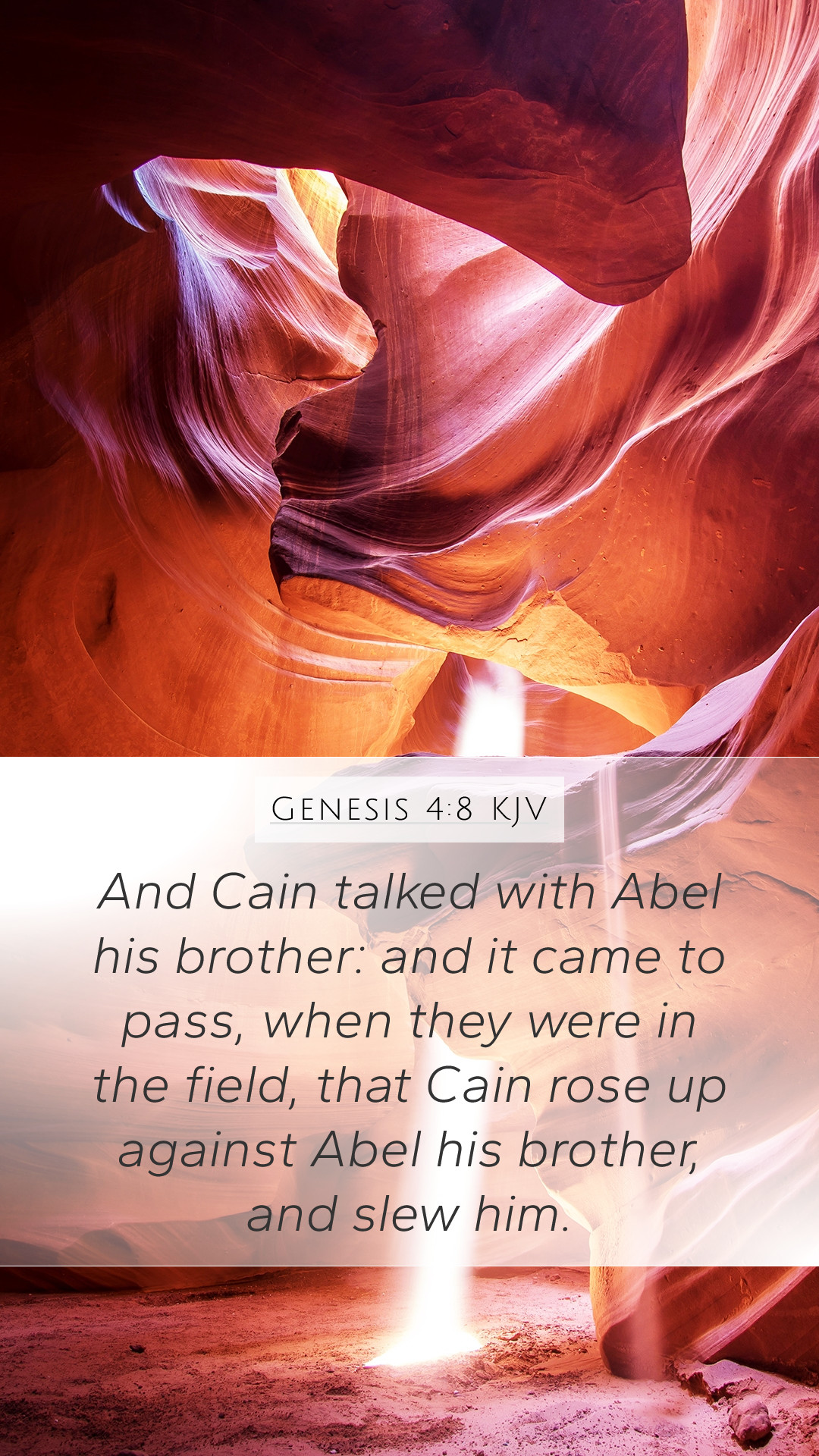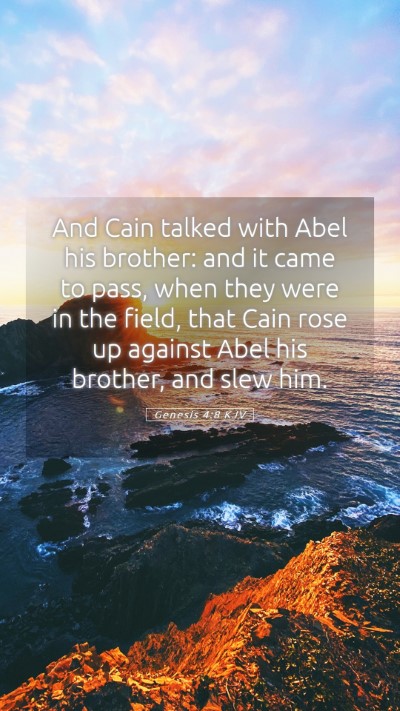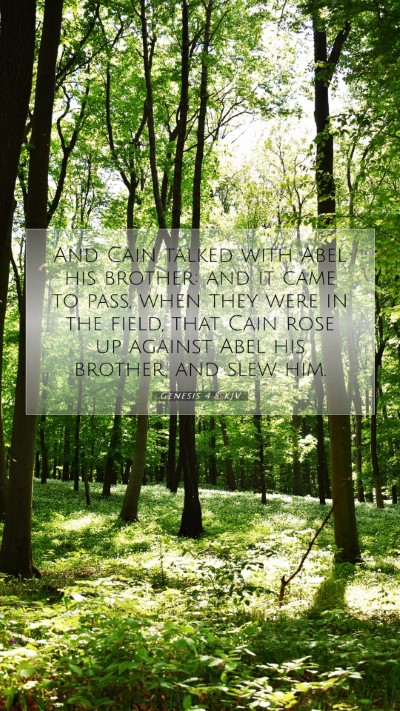Understanding Genesis 4:8
Bible Verse: Genesis 4:8 - "And Cain said to Abel, 'Let us go out to the field.' And when they were in the field, Cain rose up against his brother Abel and killed him."
Bible Verse Interpretation
This verse describes the grim moment when Cain, driven by jealousy and rage, commits the first murder. It marks a turning point in humanity's narrative, signifying the severe consequences of sin and moral decline.
Summary of Insights from Commentaries
-
Matthew Henry:
Henry emphasizes the depravity of Cain's actions and the premeditated nature of his sin. The invitation to the field seems benign, but it masks deadly intentions. This highlights how sin can be subtle, luring individuals into temptation and leading to devastating outcomes.
-
Albert Barnes:
Barnes notes the significance of Cain's conversation with Abel before the murder. It implies a deceptive friendliness, masking Cain's violent intentions. He points out the dangerous nature of unrestrained emotions and the importance of dealing with jealousy before it manifests into action.
-
Adam Clarke:
Clarke discusses the historical and spiritual context surrounding this event. He indicates that Cain's actions reflect a breakdown in the relationship not only between brothers but also between humanity and God. This act of violence initiates a long history of conflict arising from envy and anger.
Deeper Analysis of Genesis 4:8
The act of fratricide in Genesis 4:8 is rich with theological implications. It serves as an early biblical example of the destructive power of sin. Cain's character is a warning against allowing feelings of resentment to fester.
Key Themes in the Verse
- Sin and Jealousy: Cain's jealousy over God's favor toward Abel's offering leads him to commit murder. This underlines how unchecked emotions can lead to drastic actions.
- Concealment and Betrayal: The invitation to the field suggests a facade of companionship, demonstrating how betrayal often hides under the guise of friendship.
- The Consequences of Sin: The murder not only results in Abel's death but also in Cain's alienation from God and humanity, showcasing sin's far-reaching consequences.
Application to Daily Life
This verse challenges believers to examine their hearts for jealousy and unresolved anger. It serves as a reminder of the importance of addressing inner turmoil before it leads to harmful actions against others.
Cross References
- 1 John 3:12 - Speaks about Cain’s action as an example of evil.
- Matthew 5:21-22 - Jesus expands on the commandment against murder, relating anger to sin.
- Hebrews 11:4 - Mentions Abel’s faith and the implications of Cain’s actions.
Conclusion
Genesis 4:8 is pivotal in understanding the Biblical narrative concerning human sinfulness and the urgent need for self-reflection in our lives. It highlights the journey from emotion to action and serves as a caution about the depths of moral failure displayed by Cain.
This analysis can be useful for Bible study groups, online Bible study, and others seeking Bible study insights into the deeper meanings of Bible verses.


